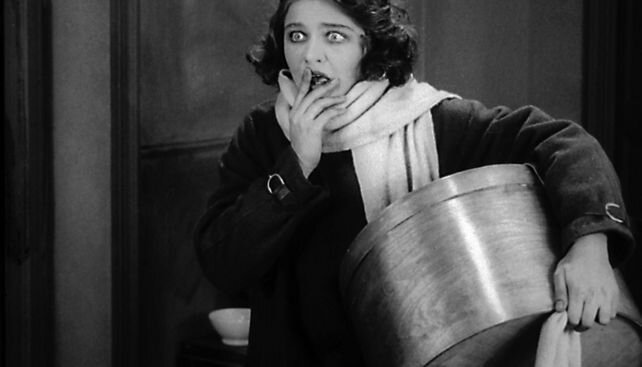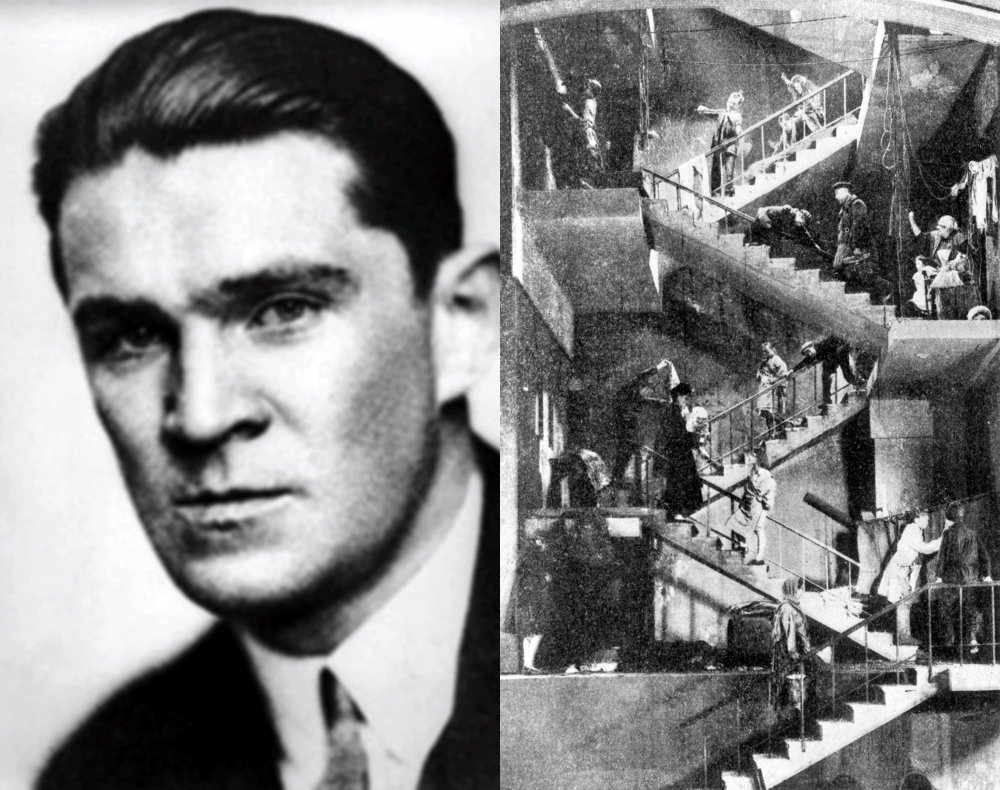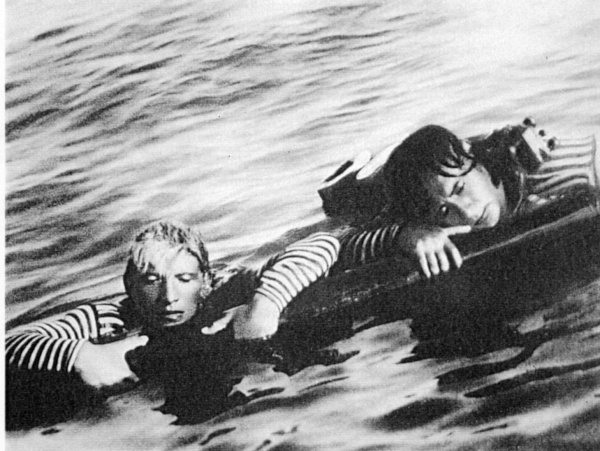A book on Boris
Barnet now seems to be a long abandoned project of mine: it has even been some time since I’ve re-watched a Barnet film. Yet while the idea refuses to leave me there has been always one issue that tormented me:
How to deal
with the weightlessness of Barnet?
If I'm not mistaken Evgenii Margolit once suggested that Eisenstein and Barnet could
be seen as the two forces (maybe constellations?) in early Soviet cinema which
pulsate and attract different, if not opposing, forces. … yet while Eisenstein left a seemingly endless
trail behind him of written documents which give witness to almost every thought process of his imaginable and so help illuminate his creations, Barnet left almost no documents behind
him but his films.
How then to
work with this silence of his? Compared to the verbosity of Eisenstein and the relative verbosity of those such as Pudovkin, Kuleshov, Dovzhenko etc
who left many written accounts (even if not such detailed ones as Eisenstein), Barnet's reticence feels unbearable for any would-be author on a book about him?
What could such a book look like?
Maybe there is one solution. To turn a Barnet project into something that would illuminate not simply his cinema but the time in which he lived.
There, of
course, is still the chance of writing a good cinematic account of each of his
films attempting to look at them from the cinematic context of the time as
well as his place in Soviet film and world cinema. Fascinating things would
emerge if one looks at Barnet in the context of, for example, French poetic
realism and exploring Barnet’s relation to his contemporary Soviet colleagues.
Yet writing about Barnet could include much more than a cinematic
account.
Maybe one can see what one can learn from an anthropological viewpoint, from a
sociological viewpoint, from literary studies, a studies of gestures, city
studies, fashion studies and then try to recreate Barnet's films from all this. Yet all too often this approach is one that often kills the object of
study by dissecting cinema from fashionable scientific approaches
rather than the films still themselves remaining obscure objects of desire.
If almost anything could illuminate Barnet, maybe his films too can
illuminate a whole universe of social relations in the first four decades of the Soviet Union. In a very different way than from the films of Eisenstein. Thankfully Soviet cinema had both Eisenstein the cerebral genius and Barnet the intuitional one: well clearly it's not that simple, but... While Eisenstein often seems like a sun that blackens out all other planets (Pudovkin, for example) there is a sense in which Barnet managed to transfer himself to another solar system so that doesn't need to be seen to be in any competition with Eisenstein.
So perhaps there are things that one can
learn from Barnet that one can’t possibly learn from Eisenstein and this resides in his more direct link to the mores and social reality of his time and to Soviet byt than Eisenstein
does. A study of Barnet can thus be more a study of his time than a study of
Eisenstein might be.
I have often thought how just as a
reading of Baudelaire led to Benjamin’s Arcades Project, a Barnet
project could also develop infinitely into some comparable project of the
Soviet times in which he made his films.
Here are some of the folder
names ready into which endless notes can be written:
Red Pinkertonism, chemical/biological warfare paranoia in the Soviet 20’s (Miss Mend);
the kvartirny vopros (Girl with a Hatbox and House on Trubnaya);
amateur
theatres in the Soviet twenties (House on Trubnaya);
poetic/artistic disputes
after the revolution; the poet Bagritsky; Odessa in the aftermath of the Revolution (Poet)
the history of the Russian and Soviet circus (The wrestler and the clown)
love triangles and the personal and the political (By the Bluest of Seas; Bountiful Summer);
Barnet as the poet of weariness (The Old Jockey, Whistlestop);
Then there's the relatively unexplored worlds of the Mezhrabpom Studios and the lack of English-language studies of lyric comedies in Soviet film (if it were not for Barnet would there have emerged a Danelia or a Ioselliani? and what of the direct influence that Barnet exercised on his assistants Khutsiev and Gaidai who worked with him on Liana?).
Then there would have to be lengthy folders on everyone Barnet worked with: from scriptwriters to actors and cameramen: Shershenevich, Erdman (or to be more the Erdman’s as he worked with three of the family), Garin, Rodchenko, the émigrés- Otsep, Anna Sten etc as well as the story of Koval'-Samborsky who after acting in Barnet's early films left the Soviet Union, was an emigre, then fled the Nazis and was then sent into exile before his rehabilitation and reappearance in Barnet's
Poet, the established Soviet actors eg Nikolai
Kriuchkov. The various theatres and directors from which Barnet poached his actors etc. (Protazanov; and the Meyerkhold, MKhAT actors etc).
These are just some
of the folders that come to mind when developing a Barnet study and surely these would just grow and grow. So this Barnet project is not going to be in book form any time soon...











